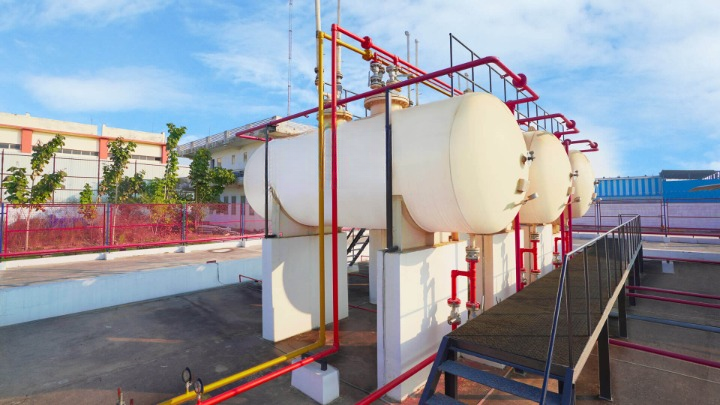Bulk LPG Installation

Components of Bulk LPG Installation
-
- Functionality of Bulk LPG Installation.
- Storage and Supply: LPG is stored in bulk tanks and supplied to the installation as needed. Automatic filling systems ensure tanks are refilled before they run out.
-
- Distribution: The piping network distributes LPG to various points within the facility, such as residential complexes, commercial buildings, or industrial sites.
- Safety Measures: Safety equipment and protocols, including regular inspections, are implemented to prevent accidents and ensure compliance with safety standards.
- Monitoring and Control: Automated systems monitor gas levels, pressure, and usage to ensure efficient operation and detect any abnormalities or leaks.
Benefits of Bulk LPG Installation
- Cost Savings: Bulk purchasing and centralized distribution reduce overall costs compared to individual cylinder systems.
- Operational Efficiency: Continuous supply and automation improve operational efficiency.
- Convenience: Eliminates the need for manual cylinder handling and frequent replacements.
- Safety: Centralized storage with safety equipment ensures safe handling and storage of LPG.
- Reliability: Provides a continuous and reliable supply of LPG for various applications.
- Scalability: Can be scaled up or down to meet changing demand requirements.
- Environmental Impact: Reduces environmental impact compared to alternative fuel sources.
- Regulatory Compliance: Adheres to safety standards and regulatory requirements.
- Versatility: Suitable for residential, commercial, and industrial use, supporting diverse applications.
- Long-Term Value: Offers long-term value with efficient management of LPG usage and costs.
